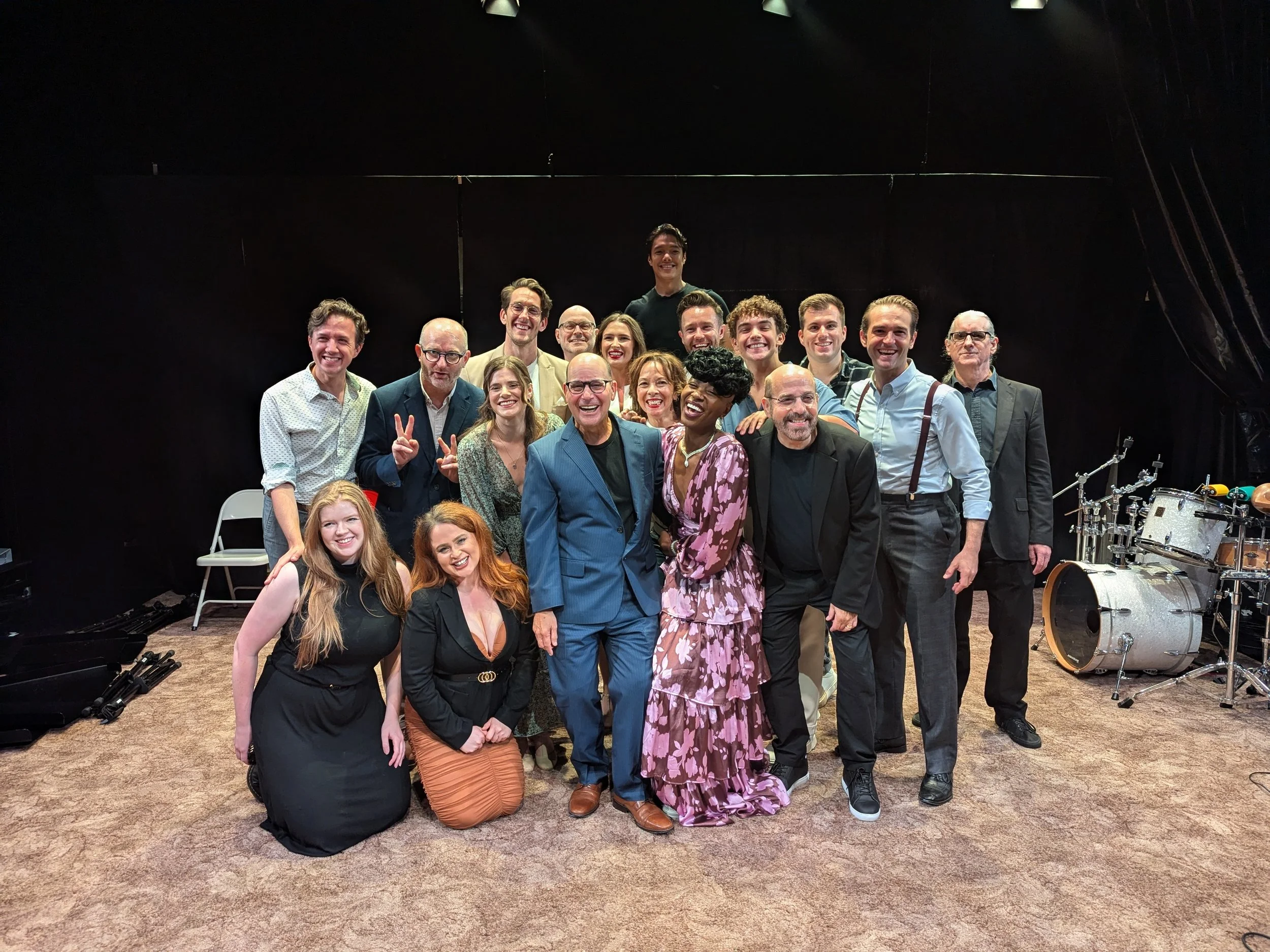Review: GOIN’ HOLLYWOOD, King’s Head Theatre
Besties, we were delighted to be invited to the new Kings Head Theatre (since January 2024), just a few steps from the old pub location for 53 years in Islington, to see a workshop of new American musical, Goin’ Hollywood. It provided a very interesting insight into one element of bringing a new musical to the attention of producers, venues, and their backers before a full staging of the show.
Shane Peterman welcomed us to the event and explained the performance was as a result of just seven days rehearsal. With the writer of the book and lyrics, Stephen Cole, in the audience and music composer David Krane on keyboard, with many other supporters watching, we knew that the cast would be eager to please and deliver, which they did with plenty of energy, charm, and strong clear voices.
The new musical had previously been staged at the WaterTower Theatre in Addison, Texas in 2023 and no doubt the tale resonates well with an older American audience as the action takes place mainly in Hollywood in 1948/49, and contains many references to the background context and stars of the time. We were not convinced that many under forty’s in the UK would have awareness of these allusions. It is the time of McCarthyism and the search for “reds under the bed” and many scriptwriters were blacklisted by the film studios or summoned to attend the House Unamerican Activities Committee (HUAC). The studio model was starting to crumble too with the all-powerful studio bosses starting to be challenged against their sexism, sexual harassment and control of their artistes. We hear references to stars of the era, from Ginger Rogers and Fred Astaire, Greta Garbo, Mickey Rooney, Gene Kelly, Ethel Merman, Esther Williams, Red Skelton, Kathryn Hepburn and Judy Garland to Republic Studio’s John Wayne. The gags that resonate best are the references to modern day such as Cats, Wicked part 3 and Google.
Some real-life characters feature in the story with Louis B Meyer, the film producer and founder of MGM (played by Mark Oxtoby) and Vera Ralston, the Czech skater and actress, who was married to Republic Pictures founder Herbert Yates, played for laughs by Ruby Hewitt. The focus is on two time-travelling scriptwriters who travel back to the period for one year from February 1948, Alice Chandler, delightfully sung by Miriam-Teak Lee, and Garson Stein, convincingly played by Zach Sorrow, and the man they meet AJ Engerman (a suave Oliver Saville) who comes under investigation by the HUAC. The start of creative unions is represented by Nancy Karinski - the animated May Tether.
Of course, the real test of a workshop of this type is the musical sound and the three-piece band and lead singers, well supported by the ensemble, do a very good job in presenting the lively catchy jazz infused score. The best numbers that get your feet tapping are the opening ‘Goin’ Hollywood’, ‘Tap It Out’, and the excellent ‘Good Company’. The song ‘Naming Names’, a satire on the HUAC, is perhaps too clever and quick to make sense unless you are really immersed in the context. The ‘Gower Gulch’ is potentially a good comic song but again, without knowledge of Republic Pictures Western film making reputation and the casting of Vera Ralston, it is easy to miss the point.
It was lovely to be part of the workshop, and you can’t help but admire the talent of the cast and the passion of the producers/promoters in bringing this to the King’s Head but its time travel story does not feel like it has the potential to be the next Back to the Future as we don’t have the contextual background to appreciate the story. Likewise, it does not have the emotional appeal of Sunset Boulevard, set in the same period. We can see the modern parallels to the recent Hollywood Writers strike, the MeToo campaign and the exposure of Harvey Weinstein, but these are not explicit. The emphasis in the book seems like it is for this period’s film buffs or aficionados who might appreciate the references and this perhaps narrows its appeal to a UK audience. Of course, with more work, proper staging and film imagery, and perhaps some context in the programme, it could still develop into a full-scale production. We wish them luck.
Nick Wayne

